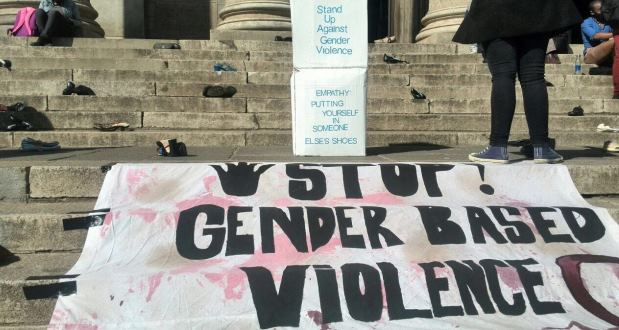COMMENT
The horrific death of 19-year old UCT student Uyinene Mrwetyana, is for many South Africans the cruel combination of unsurprising and heart-breaking. It is perhaps the everyday of the post office that has pushed many over the edge, into action. One prominent response on social media is a call for the return of the death penalty for perpetrators of violence against women. Capital punishment seems the only response compatible with our anger, fitting for the horror. But it is not the solution we need. By DR CHRISTINE HOBDEN.
The death penalty offers only a temporary consolation to our anger while continuing to buy into a societal culture of violence and disregard for the value of a human life. It is also notoriously unsuccessful as a deterrent and expensive to implement. Calling for the death penalty chooses a solution that is far removed from us as citizens, and right at the end of a long judicial process. Our response needs to include ourselves, and to push for changes throughout our institutions.
We need to call on our government to implement not the death penalty but a comprehensive strategy to ensure safe reporting and supported court procedures that do not victim-blame or re-traumatize complainants. We need not harsher sentences, but effective policing that prevents gender-based violence; women need to be able to trust the efficacy of a protection order and their safety in government institutions like police stations and post offices.
So yes, as citizens we should direct our attention to holding our government accountable to do better, much better. But we should also direct some reform in our own direction. How do we meaningfully change a norm of men feeling entitled to women’s bodies and lives? Patriarchy is persistent and pernicious. If you feel motivated to act today, join the resistance to patriarchy in all its forms. Deny rape culture its grip: speak out against every rape joke, every comment that objectifies a women, every comment that perpetuates toxic masculinity, every one.
It is an unglamorous struggle in its relentlessness and seeming smallness. Just like trying hold government accountable, alone it can feel pointless. The key is to keep focused on what we as citizens can achieve together: accountability and norm-shifting are tasks for the collective, and we each need to do our bit, best we can, according to our context, resources, and ability.
Dr Christine Hobden is a lecturer in the department of philosophy, University of Fort Hare.
The views expressed in this article are the author’s own and do not necessarily reflect the editorial policies of The Daily Vox.
Featured image by Nyiko Shikwambane









